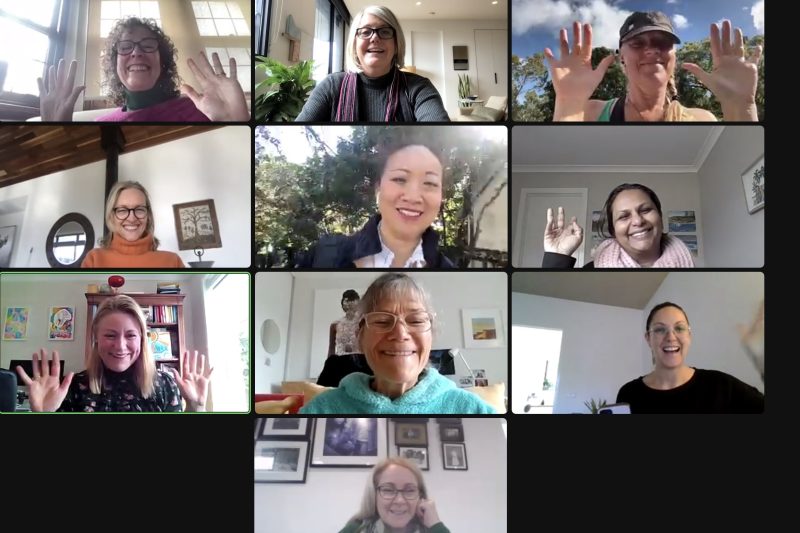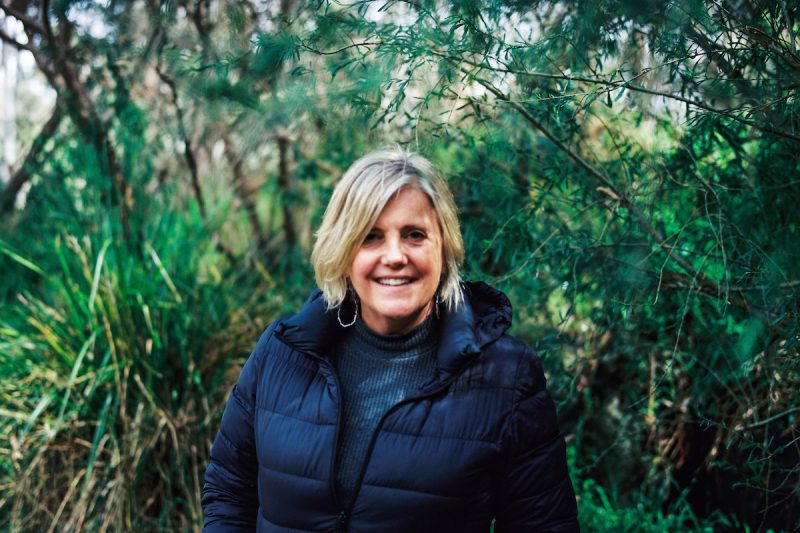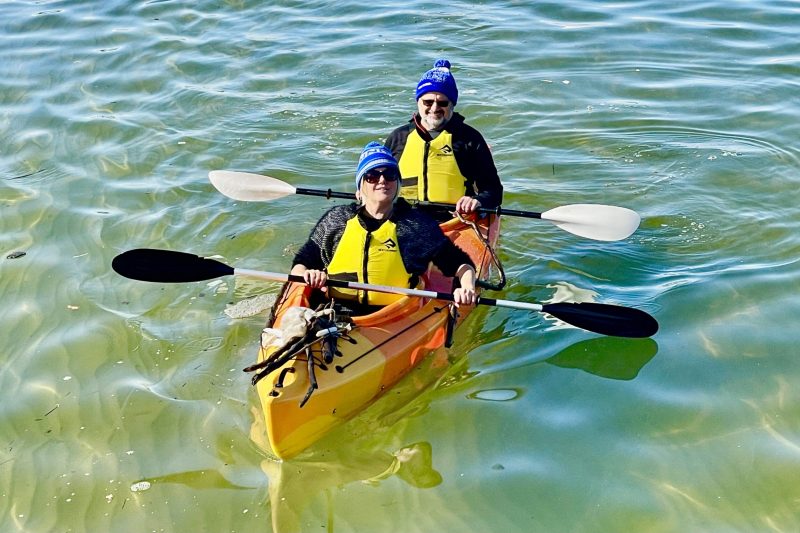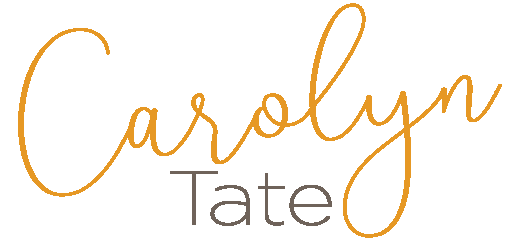The Slow School of Business (Slow School) was launched last Thursday night in Melbourne in community partnership with Hub Australia. Below is the original written and edited version of the interview between Slow School founder, Carolyn Tate and MC Sandi Givens.
See snapshot of the evening here. Click here
Sandi: Tell us about The Slow School of Business (Slow School)? What is it? Who is it for?
Carolyn: Slow School is an unconventional business school dedicated to helping people build purpose-driven and prosperous businesses that make the world a better place. We serve the experienced and worldly independents, freelancers, consultants, educators, creatives, artists and corporate escapees amongst us. We bring people together to learn and connect at our classes, workshops and dinners. We practice collaborative learning because we believe that we are all both teachers and students. We draw on principles from conscious capitalism, conscious marketing, philosophy, psychology, culture and the arts and we’re committed to bringing more spiritual and emotional intelligence to the business world.
Sandi: It’s less than four months since you even conceived of the idea. How did it come about and why did you start the school?
Carolyn: To be honest it was the culmination of more than two years of discomfort, confusion, anger and sadness (not just at myself but at the world in general) amongst some brilliant and happy times of course. I was sad and angry about so many things; the destruction of our planet, the suppression of women and the feminine, the greed of the corporate world, the inadequacies of government, the toxicity of the media, the woeful education options (for youth and adults) and so much more.
I can remember sitting at The Hub Melbourne at a desk in May 2012 thinking what the hell am I doing here? I don’t know who I am, where I belong or what I have to offer the world. How can I even start to fix some of the terrible stuff happening in the world we live in? I realised I could either turn that sadness and anger into positive action or I could wallow in it.
I’m a pretty resilient person so I took a dose of my own advice – action precedes clarity. I got messy and rolled my sleeves up. I wrote a paper on why marketing was broken, got actively involved in The Hub, jumped in to lead the Conscious Capitalism Victoria movement, wrote blogs, bid farewell to my old marketing business Connect, published the book I wrote in France (Unstuck in Provence), ran programs and workshops and did some consulting work.
Then four months ago at a School of Philosophy lecture I heard a school elder share the story of how the school was built and it’s purpose. A week later after days of journaling, I’d made a decision that I had to build something far bigger than me – a school that would bring together solo operators like me that care about making the world a better place – a place where people could come and bring all of who they are to the table (not just their business face), where they could come to learn from each other, connect deeply, and feel supported to go on this purpose journey and start collaborating with each other.
Sandi: Why ‘Slow’?
Carolyn: It came to me as I was walking ‘slowly’ around the park one day early April. I was aware of the slow food and slow money movements in the US. In a business context I’ve always considered the reason most businesses fail is because everything is done so fast. Corporations are pressured into making fast decisions most often to maximize short-term profit or meet external market pressure and this often has disastrous consequences especially for our ultimate stakeholder – the planet. We live in such a consumerist, ‘throw away’ society, like we have another three planets to go to when this one is used up. The notion of ‘slow’ really appealed to me in the face of how business is done and how we are all living in the world today.
In terms of the small business world, particularly those of us selling our knowledge, skills and expertise, we make too many hasty decisions and spend a lot of money, time and energy on thoughtless activity (including many of the BS business education programs on the market). We have what I call the BSO (Bright Shiny Object) syndrome. We get constantly distracted by things, ideas, projects and other people and we lose our centredness, self-trust and ability to make wise choices.
‘Slow’ encapsulates everything I believe in about how business should be. Paradoxically, slow decisions reap better and faster results. Every time I say or write ‘Slow School’ it’s a reminder to not rush into decisions around the school, to be mindful and in the present and to do just what’s needed for today without concern for the future.
Read more in Slow Magazine
Sandi: What are the guiding values of Slow School?
Carolyn: For me, values are all about how we behave, not what we say. That’s the truest test of our moral fibre. At Slow School we make conscious choices (we’re dedicated to growth and awareness), we take courageous actions (we dare to take the road less travelled), we build deep connections (with ourselves first and then each other), we value real collaboration (we have a ‘what can I give?’ not ‘what can I get?’ mindset) and we act with compassion (without care for each other and the planet, there’s no point to any of it).
These five words Consciousness, Courage, Compassion, Connection, Collaboration are at the heart of how we behave. They’re our glue. As I try to be a more conscious leader every day, I’m open to having the values challenged by students as we go along, but for now I can safely say that every single person associated with the school exhibits each of these behaviours.
Sandi: Slow School is a purpose-driven school. What does that actually mean?
Carolyn: Ah the million dollar question! This was answered for me so clearly just last week when I was lucky enough to sit with the elder at the School of Philosophy again and have him share his wisdom. He said two profound yet stunningly simple things;
- That an organisation (or any entity for that matter) exists to fill a need and to serve the community. (Think about that).
- That an organisation exists to find the truth so that each may uncover their own unique talents and realise their full potential.
I believe purpose is all about living and working at the intersection of your talents, passions and strengths in service of the greater good. It’s about having a life (and a business) that has a goal to leave the world a better place because you existed.
Every day I meet people that are being called to do more purpose-driven work but who are stuck in the financial imperative to make a living (often from doing shitty work for shitty companies for shitty pay). I want this school to help people who were stuck like I was, to find the courage to go on the purpose journey. The more of us out there doing this work, the better the world will be for our children and their children. I love the notion of being a wicked role model for my son.
Sandi: It took you less than four months from conception of the idea to launch. How did you do it?
Carolyn: It feels like it was an act of God actually (and I’m in no way religious). I spent the last four months journaling, walking, meditating, doing the spiritual work, writing and dreaming about the school. I did more internal work than external work. That’s both a professional and personal imperative today I believe.
And then I just put together a slide deck (mainly for my own purposes) that articulated the school purpose, vision, values, principles, who it would serve and what I needed to make it happen. I presented that to the Hub team on Wednesday 14 May and asked them to be a Community Partner to which the immediate response was YES.
Then in June/July I hosted a series of Deep Dinners (we had a total of 70 people attend) where I shared the vision and asked people what they most wanted to learn and what was keeping them awake at night. I also had many, many coffees with people to talk about their business and share the school vision. From that a most wonderful team of people stepped forward to be of service to the school. It’s been a most humbling experience accepting help from people. Then we ran a couple of trial classes to test this whole collaborative learning thing. It was all pretty organic really and a good lesson for me in letting go of control.
And now here we are launching Slow School.
Sandi: What does the rest of this year hold for Slow School?
Carolyn: The rest of this year is all about proving the need for this school – and that’s not up to me – it’s up to the students and the powers that be. We’re practicing conscious marketing by articulating the purpose and gathering the people first. Then together we’ll build the school based on the peoples needs. We had to put a stake in the ground somewhere with the first classes for the rest of the year and they will grow and evolve as we start to understand more about what people really need.
While the school is running we’ll work on the other stuff we don’t know yet – the legal entity, the business model, funding, the technology required and so on.
I intend to be 100% transparent through blogging about the ups and downs of building the school. It’s truly a case of learning and teaching through doing and sharing.
Sandi: What’s the vision for Slow School?
Carolyn: I’ve been journaling a lot about this too and meditating on it. I see Slow School as a market place that connects members with the companies that need their services. For students/members, I see Slow School as a place filled with the most talented, purpose-driven people that come together to learn, connect and collaborate. For companies, I see Slow School as a resource to access the services of these talented purpose-driven people.
We’ll start in Melbourne and expand to Sydney in 2015. I see it as a ‘human’ school, not an online school. Technology will be the great enabler but not the master.
Sandi: So why would people want to get involved with the school?
Carolyn: There are many reasons to get involved; to get connected to other independents that share the same imperative to do work that’s purpose-driven, to learn the stuff that you really want to learn (the class content and subjects are entirely driven by the students), to find others that you can skill share with, refer work to and collaborate with to deliver on larger projects. We all want to work with people that we know, like and trust and who we’d actually form a friendship with. We’re breaking new ground with Slow School both from a business and education sense, friendships are being formed, collaboration is already happening. Why wouldn’t some one want to be a part of a community like that?
Sandi: What’s been the most powerful thing you’ve learnt in the process of curating this school?
Carolyn: I’ve learnt to take every day and every week just as it comes, to trust my intuition and let go of worry or attachment to outcomes. I’ve learnt to become comfortable with not knowing what’s next. I’ve learnt that products come and go and that your purpose and your people are the glue. Every day my consciousness as a leader is being tested but I couldn’t be here now if I hadn’t given myself permission to get messy in the past. And no doubt it will get messy all over again – but isn’t that wonderful? When did the business world get so linear, rational and boring that we couldn’t have fun and colour outside the lines?
Sandi: What’s your advice to others on the purpose journey?
Carolyn: Dare to follow the road less travelled and work towards building a purpose-driven business. You don’t need to see your destination to start driving, but you do need to know which road to take and that’s what actually takes the most time to work out. Look closely at what’s eating you up, what makes you incredibly angry and sad. Somewhere in there is something that you desperately want to fix. Put that at the heart of the purpose of your business and you’ll never have to work another day in your life. Oh and come along to a Slow School class and get the support you need to do this purpose work. Having other people around you that are also on the same journey makes it all the more worthwhile. With the right people around you truly anything is possible!
Find out more about Slow School





